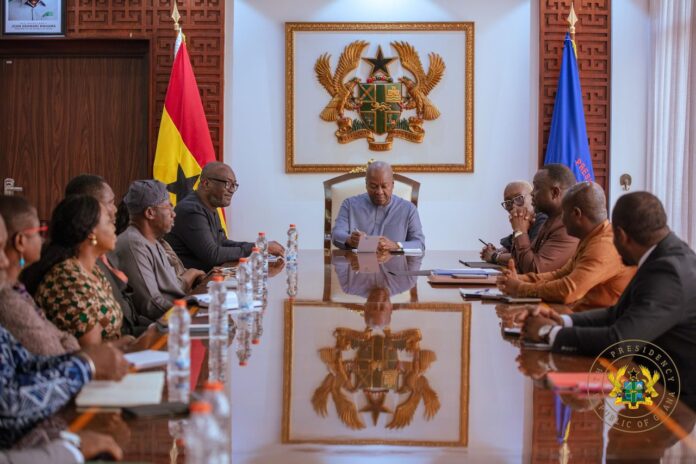The Constitution Review Committee (CRC), tasked with evaluating and proposing reforms to Ghana’s 1992 Constitution, has so far received over 500 submissions from stakeholders through both online and in-person engagements.
The committee, made up of legal and governance experts, aims to identify sections of the Constitution that need to be updated to reflect Ghana’s evolving democratic and socio-economic realities.
As part of its mandate, the CRC will also assess earlier recommendations, determine necessary reforms, and develop a clear roadmap for constitutional amendments.
Secretary to the CRC, Dr. Rainer Akumperigya, described the stakeholder consultations as productive, revealing that the committee has received written submissions from a wide range of institutions and individuals.
Among the contributors are the National Commission for Civic Education (NCCE), former Electoral Commission officials, NGOs, and Civil Society Organisations (CSOs) with expertise in natural resource governance, including the Africa Centre for Energy Policy.
From the academic front, Professors Kwame Gyan, Kofi Quashiga, and Kwadwo Appiagyei-Atua of the University of Ghana have submitted proposals to aid the review process.
Additionally, the Institute of Economic Affairs (IEA) submitted recommendations through two notable figures—former Speaker of Parliament Professor Mike Aaron Oquaye and former Chief Justice Justice Sophia Akuffo. Submissions have also been received from engineers and other professional bodies.
Dr. Akumperigya noted that the committee has met with former President John Dramani Mahama at the Jubilee House to draw from his experience, spanning roles as an assemblyman, Member of Parliament, Vice President, and President.
“The Committee will also meet with the other arms of government—the Legislature and Judiciary—to receive their proposals, as well as with former Presidents and Vice Presidents to support our work,” he stated.
Committee Sets Strategic Framework for Inclusive Engagement
Dr. Akumperigya explained that since its inauguration in February, the committee has focused on developing a comprehensive strategy to guide its work. This includes defining timelines, setting engagement modalities, and allocating resources.
The committee adopted two main approaches for consultations: stakeholder engagements and validation sessions.
He further noted that President Akufo-Addo had announced plans to convene a National Constitutional Validation Conference before the committee was formed. To avoid duplication, the CRC proposed merging the conference into its zonal engagement framework—a suggestion the President approved.
Under this strategy, the country has been divided into eight zones covering all 16 regions, with Tamale and Bolgatanga forming one zone. Other zones include Wa, Sunyani, Kumasi, Takoradi, Cape Coast, and Koforidua, while Accra will serve as the central hub for stakeholder engagements.
The zonal engagements are open to the general public, including traditional authorities, educational institutions, students’ unions, women’s groups, and disability advocacy organisations.
Dr. Akumperigya also outlined the committee’s thematic focus, which includes governance of lands and natural resources, decentralisation, local government and chieftaincy, and public services and enterprises.
Other areas under review include independent constitutional bodies such as the Electoral Commission, National Media Commission, Commission on Human Rights and Administrative Justice, National Commission for Civic Education, Auditor-General, and Audit Service.
The roles of the three arms of government—the Executive, Legislature, and Judiciary—are also under scrutiny, alongside matters relating to public finance, the Central Bank, discretionary power, and dual citizenship.
Dr. Akumperigya stressed that the Constitution outlines the processes for amending entrenched and non-entrenched clauses.
“For non-entrenched clauses, Parliament can amend them once the required voting thresholds are met. Given the NDC’s current majority in Parliament, these could be addressed with relative ease,” he explained.
However, he noted that for entrenched provisions, the committee is expected to propose a timeline, a plan, and a roadmap for government to implement any recommended reforms.
The final report, he said, will not only consider the work of previous committees, such as the Prof. Albert K. Fiadjoe-led Constitution Review Commission, but will also reflect major contemporary developments in governance.
ALSO READ:

